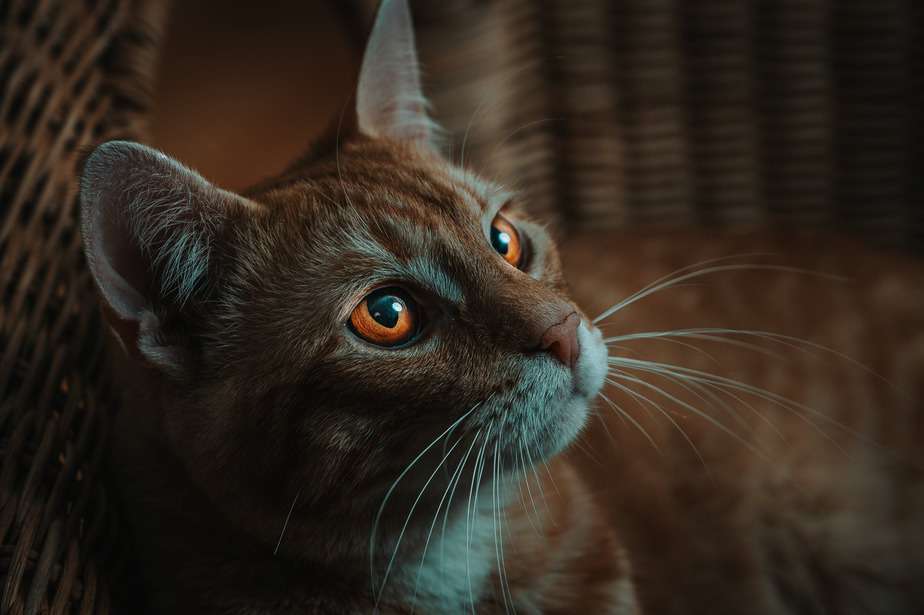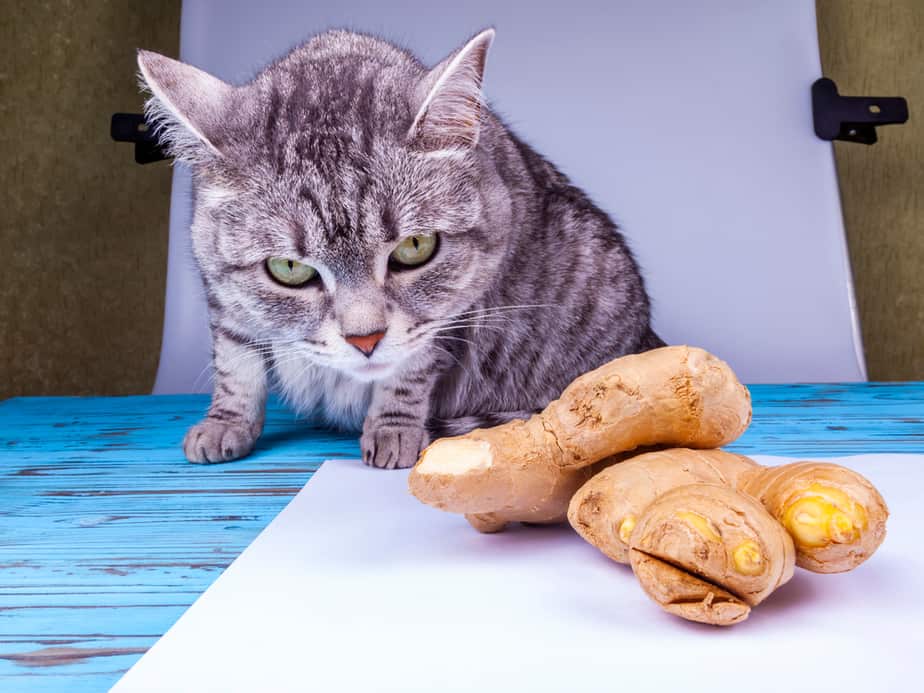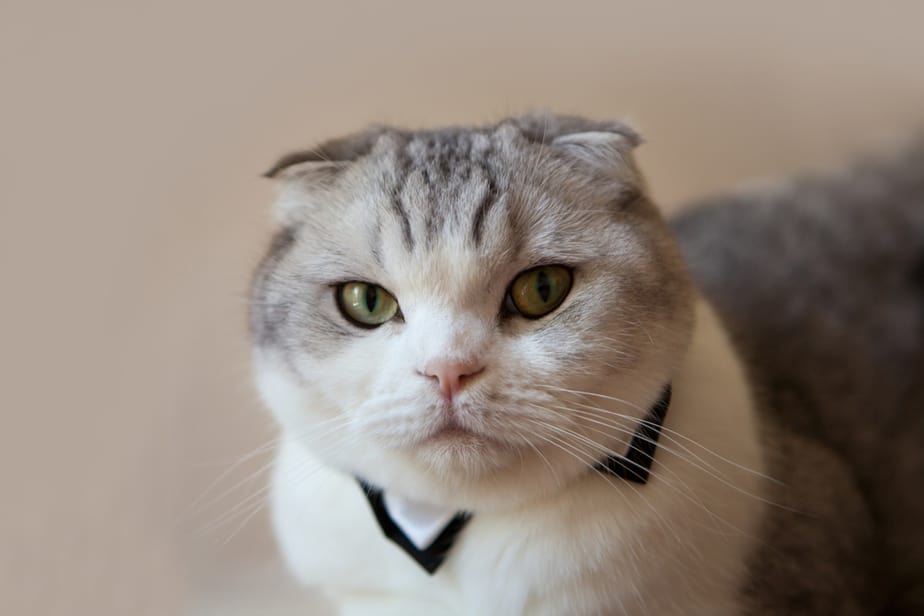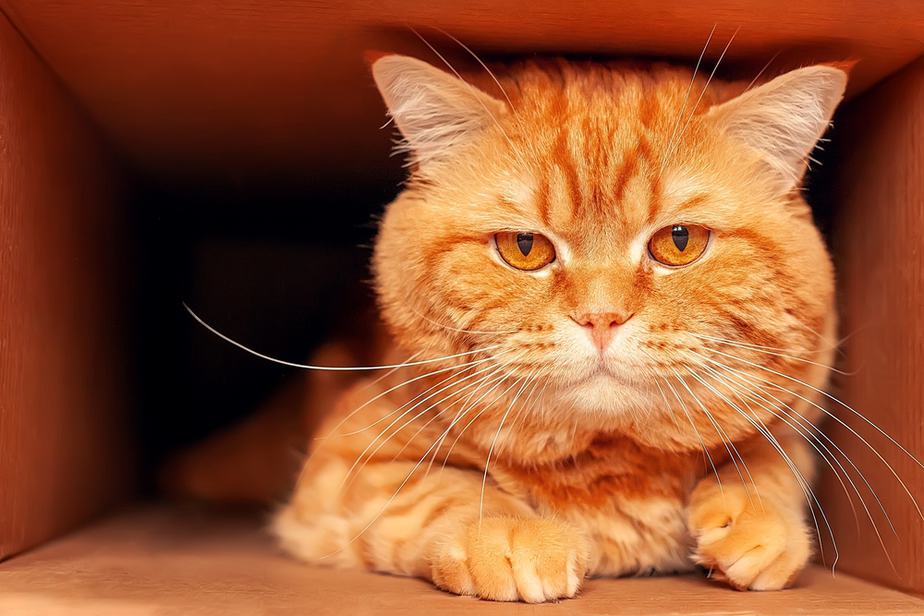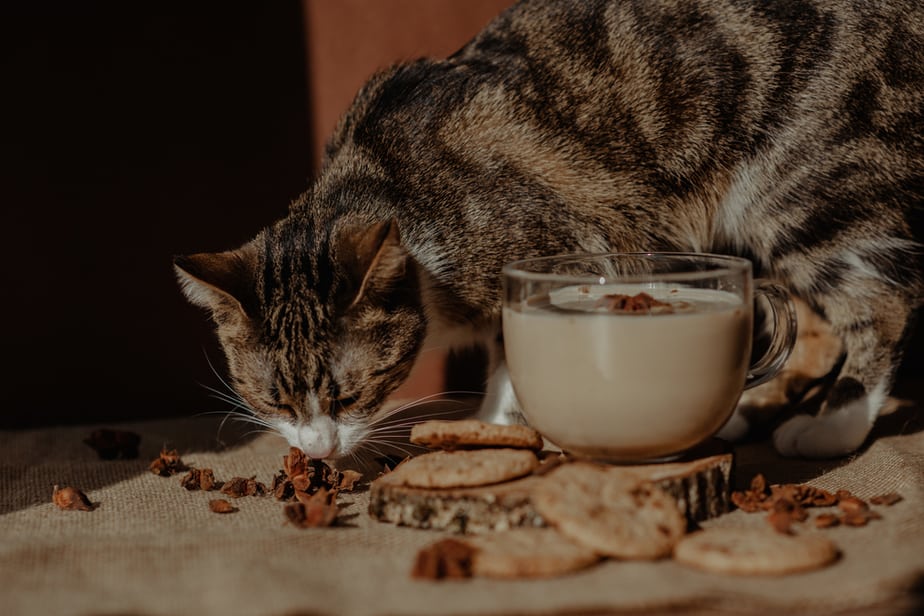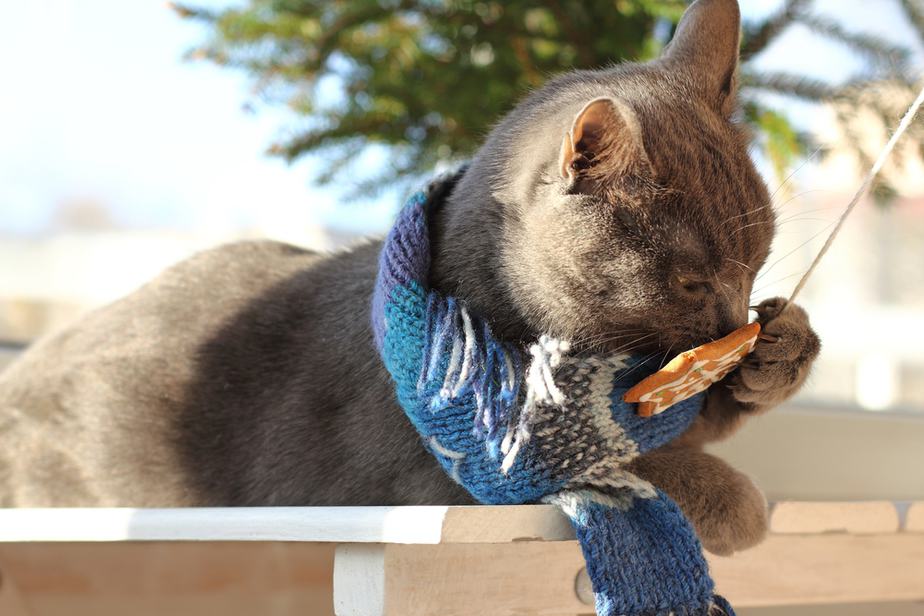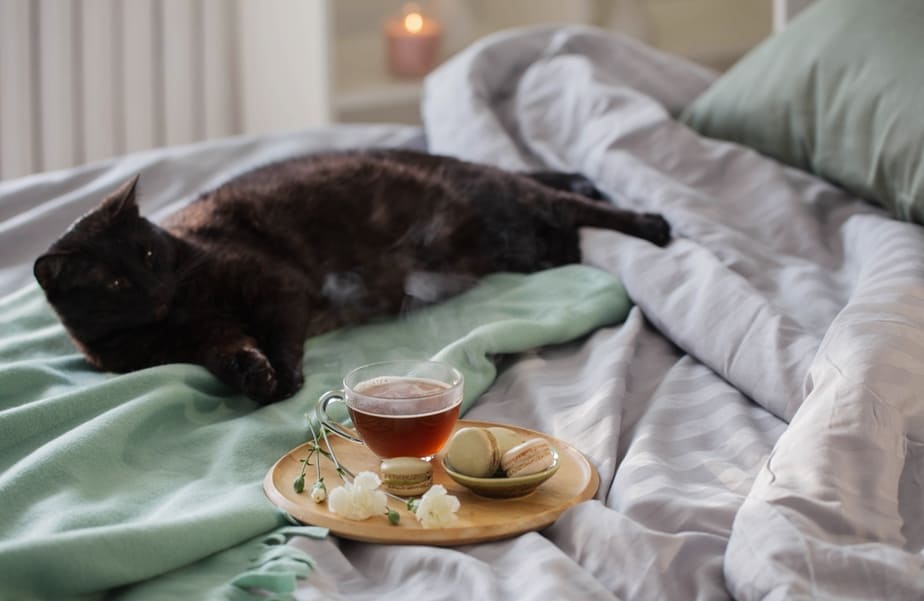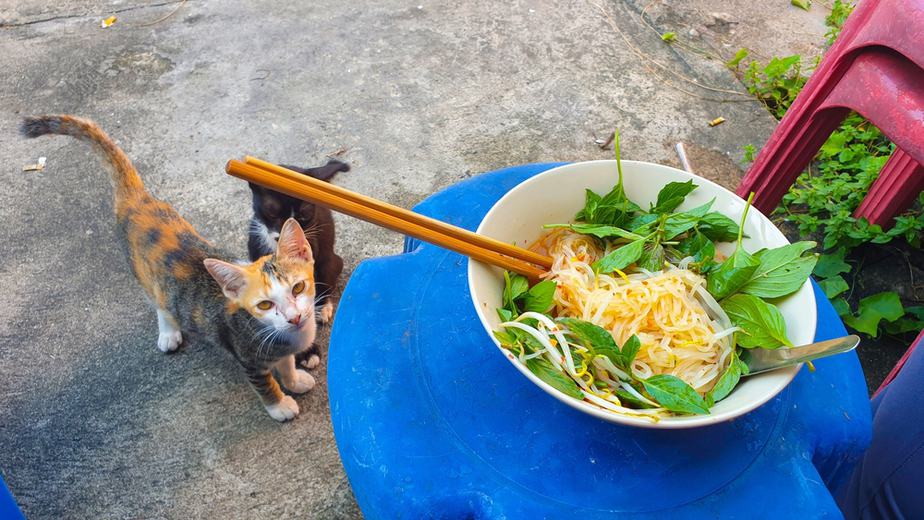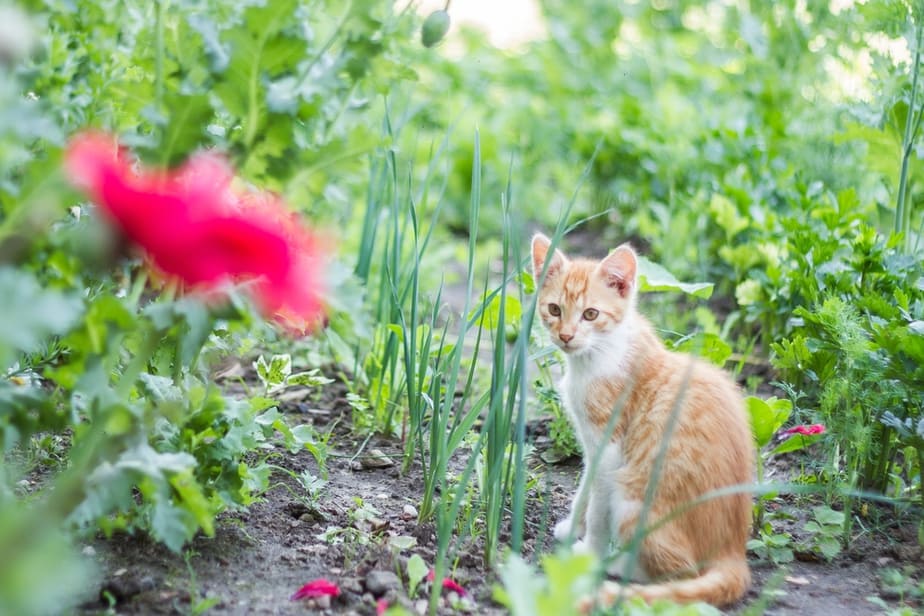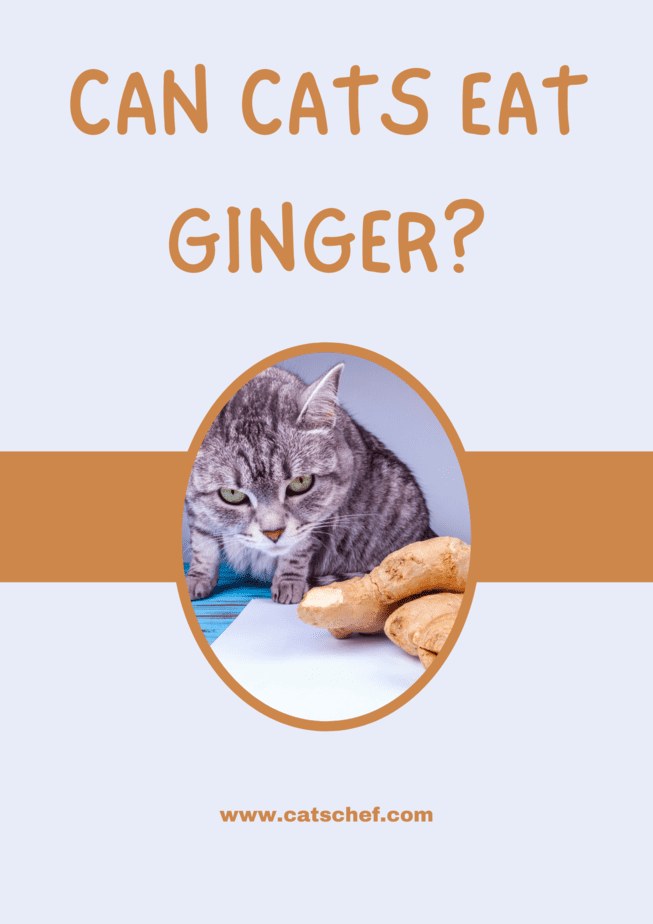📖 Table of Content:
- So, can cats eat ginger safely?
- Do cats even like ginger?
- Are there any health benefits?
- What could go wrong?
- Can cats eat ginger snaps?
- Can cats eat ginger nut biscuits?
- Can cats eat ginger cookies?
- What about ginger tea?
- Can cats have ginger ale?
- What about pickled ginger?
- Can cats eat ginger root?
- What if my cat eats ginger flowers?
- How much ginger can cats have?
- In summary
If you have a mini garden, make sure to grow some ginger! It’s healthy for humans and can be used in many ways. What about our little gardeners, though? Can cats eat ginger?
If you have a little feline that likes to explore and is usually an adventurous spirit, you may be concerned about what you have in your garden. These little mischievous creatures like to get their paws dirty.
If your cat is a digger, I’m sure you’re going crazy thinking about what is she going to dig up next. These little explorers have nine lives, but are we really prepared to find out if this is just a myth?
Being a cat parent can be exhausting at times, but fun as well. However, you must ask yourself can cats eat ginger before you let your lovebug roam around the garden or pantry freely.
So, can cats eat ginger safely?
We know why humans love ginger. It has many uses in different cuisines and carries various health benefits. However, we know the world is always revolving around our little furballs. Therefore, we must find out can cats eat ginger in order to prevent anything bad from happening.
Thankfully, ginger is totally safe for cats. You may be worried because you accidentally left it on the countertop while forgetting what a good climber your pet is. It doesn’t ease your mind that she’s a curious creature and will probably want to investigate it.
Rest assured because ginger won’t harm your feline. Not only is it non-toxic, but it can also provide your cat with some health benefits. The relief you feel when you finally find out cats can eat ginger safely!
Do cats even like ginger?
Some felines don’t mind it at all, while others don’t give it a second thought. Remember that it has a strong flavor, and your pet has stronger senses than people, so it may be off-putting to them.
However, because ginger comes in so many different forms, you should be able to find a method to give it to your furkid in order for them to benefit from its therapeutic effects.
Are there any health benefits?
It’s not just that ginger is safe for cats, but it also holds various health benefits. Surprisingly, this root can help your pet in many ways. However, you should never incorporate new foods into your cat’s diet without consulting your vet.
Even though it’s healthy, ginger isn’t a natural choice of food for cats. Therefore, getting all of the needed information from the vet might save your pet!
1. Full of antioxidants
One of the many health benefits of ginger is that it’s a great source of antioxidants. It has anti-inflammatory properties that have been the reason behind ginger’s widespread use for many years in traditional medicine.
Ginger gets its distinct aroma and flavor from its natural oils, the most prominent of which is gingerol. It is a major bioactive ingredient that’s responsible for a lot of the therapeutic benefits of ginger.
Gingerol may, for example, aid in the reduction of oxidative stress, which is caused by an excess of free radicals in the body. It can protect your cat from diseases such as cancer, arthritis, diabetes, heart disease, obesity, and more.
2. Aids in digestive health
As if it wasn’t cool enough, ginger can also help your cat empty her intestines! While this isn’t a very pleasant sight, a bit of ginger can do the trick. If your cat’s suffering from constipation, it would be best if you consult with your vet about some ginger magic.
Additionally, ginger is known to help prevent bloating. This may reduce abdominal pain which results in a calmer and happier furbaby!
Talking about constipation, ginger has another trick up its sleeve. It can also treat diarrhea in cats. So, if your pet is having the runs, maybe some ginger will be her saving grace.
Wait, there’s more! Ginger can also help in weight regulation.
So, if your pet is struggling to cut down on some of her favorite snacks like chicken feet, try introducing some ginger water in her diet. Note that you shouldn’t do this without your vet’s approval.
3. Supporting heart health
Ginger never ceases to amaze us. Next to all of the properties mentioned above, this herb may have anti-diabetic properties because it’s low in carbs and calories. The way these properties work is that they tend to decrease blood sugar levels while increasing insulin.
High cholesterol levels are known to increase the chances of getting heart diseases and heart stroke. Ginger lowers the cholesterol levels in the blood which are one of the causes of various heart problems.
It can also be a great addition for cats who suffer from diabetes. However, you should always talk to your vet for further instructions.
Not only can cats eat ginger, but you should really consider adding small amounts to your cat’s diet. After you hear all of the potential health benefits it carries, you’ll certainly run to the nearest grocery store!
4. Ginger is full of vitamins and minerals
If you want to boost your cat’s and your immune system, adding some ginger to your life can spice things up. This root is a great and natural source of many health supplements such as vitamin C, calcium, iron, magnesium, vitamin B, vitamin D, and many more.
Magnesium is an important mineral that helps create energy from protein due to its enzymatic properties. This makes it essential to cats as they’re fairly active animals. This mineral also aids in muscle contraction and relaxation and helps regulate the nervous system.
As for vitamins, vitamin D is essential in keeping the bones healthy. Just like calcium, it works to prevent bone fractures and maintain bone strength. It’s especially important for cats that are active and love jumping and climbing.
Vitamin B12 is a vital component that the feline body needs to maintain good brain, nerve, and blood health. Vitamin B6 is essential for proper nerve function and general brain health. It also plays a role in the metabolism of sugar, cholesterol, and protein.
What could go wrong?
So far, ginger is the good guy. However, we know that everything comes with a price. Don’t be too alarmed though. The only concern you have with your cat eating ginger is if she’s undergone surgery recently.
Ginger has a blood-thinning effect which can be bad for felines that are pregnant or taking medication. This property can result in low blood pressure. But if you have an overall healthy cat, you shouldn’t be concerned about this.
If your cat is weak, small amounts of ginger aren’t likely to harm her. However, it’s best to save the ginger for a later time, when your cat fully recovers.
Can cats eat ginger snaps?
Sometimes, the names can be fooling, like this one. There’s more to ginger snaps than just the ginger. This dessert has certain ingredients that aren’t allowed in a cat world. These include cloves, sugar, cinnamon, nutmeg, and salt.
Cloves’ strong aroma and taste are what attract us humans. We use them in baking and cooking as they give a distinct flavor and smell to our food.
But this spice is highly poisonous as it contains eugenols. Feeding your cat food with cloves can put her at risk of liver toxicity. So, it’s more than obvious what you should do if you notice “clove” on the list of the ingredients.
We all know cats can’t have sugar, but why is that? It’s a carbohydrate that’s unnecessary in their diet. If consumed excessively, all it does is get stored as fat and create problems! This increases the risks of diabetes, as well as tooth decay.
Good thing that cats can’t taste sweetness, right? Don’t feel sad though, they’re much better off without sugar!
Cinnamon, is another ingredient to be careful about. If she simply nibbled on it, it’s not hazardous, but if she guzzled down a bigger amount, keep an eye out for signs of poisoning.
Cinnamon has a strong scent that, while appealing to humans, is typically repulsive to cats. This powerful, fragrant spice is used as a flavoring component in a number of meals including Cinnamon Toast Crunch, but it doesn’t appeal to your cat.
Nutmeg is hazardous to pets when consumed in large amounts. It can cause minor gastrointestinal issues, hallucinations, or even disorientation. There’s also a possibility that your cat will suffer from high blood pressure, dry mouth, or abdominal discomfort.
The most serious consequence of nutmeg consumption are seizures. I’m sure that reading this word alone instantly makes you worried.
Salt can be detrimental to your feline’s health as it can cause toxicity if consumed constantly. Sodium poisoning is something you should take seriously and it has similar effects to nutmeg poisoning, including vomiting and diarrhea.
When you combine all of these ingredients together with ginger, you get ginger snaps. Unfortunately, no matter how healthy ginger is, it still can’t overpower the rest of the mix.
So, it’s better if you keep these delicious cookies away from your pet if you want her to stay healthy and fit.
Can cats eat ginger nut biscuits?
Who doesn’t love biscuits? Small amounts of biscuits are totally OK to feed to your pet. Don’t get ahead of yourself, though. Snacking on these biscuits should be limited to a once-in-a-while indulgence.
Excessive quantities may cause gastrointestinal discomfort. The reason behind this is that they’re high in oils which can upset your cat’s stomach. Also, butter found in these biscuits is not something your cat will benefit from.
Can cats eat ginger cookies?
These tasty cookies are a popular delicacy among many people. The flavor and crunch might help satisfy a hunger! In little doses, it’s unlikely these will be harmful to your cat’s health. However, if your pet ingests any bigger amounts, be cautious.
Cats, like people, are susceptible to both short- and long-term health problems. These are frequently the results of people trying to humanize their pets. This entails providing your cat with human food that isn’t required for her diet.
This can lead to a variety of health issues, including weight gain, diabetes, dental problems, allergies, and more, all of which can interfere with your cat’s usual existence. Ginger cookies, just like ginger snaps, contain harmful ingredients.
What about ginger tea?
When it comes to whether cats can drink ginger tea, the answer is both yes and no. It’s not that complicated, just needs a little bit of explaining.
This tea is great because you don’t have to purchase it, you can make it at home! All you need is some ginger and hot water.
However, it’s not that simple, remember? Do you know how they say that size doesn’t matter? Well, it does matter when it comes to our pets.
If you want to offer your furbaby some ginger tea, you have to be careful about the dosage. If you have a small furkid, a tablespoon of this drink would be more than enough.
Some chunkier, middle-sized fluffs could drink up to one-quarter of the cup and safely enjoy it. As for the chubby cats (or just big cats), you can easily share your cup of tea with them. Half a cup is going to be the upper limit for them.
But, that’s not it. Don’t get ahead of yourself and sweeten their tea! As I already mentioned, sugar is bad for cats in many ways; and while you may not be able to drink ginger tea without it, your cat will have to.
Small amounts that are consumed on rare occasions aren’t a cause for concern. However, if your pet is exposed to this carb for a longer period of time, it could be quite detrimental to her health.
Excessive amounts of carbohydrates can cause obesity in felines which isn’t great news for their joints. The added pressure makes the joints more prone to developing inflammation and arthritis.
The good news is that your cat won’t beg for sugar since she doesn’t have the taste buds that would allow her to pick up the sweet taste. So, ginger tea is safe for cats as long as it’s decaffeinated and unsweetened.
Can cats have ginger ale?
Ginger ale is a refreshing drink that’s both tart and sweet in taste. While it may be a flavorful drink for humans, it’s off-limits for felines.
The reason why cats shouldn’t drink ginger ale is because of its ingredients. Next to ginger, ginger ale consists of honey, soda, and lemon.
Soda is bad for cats in many ways. Caffeine, sugars, as well as artificial sweeteners that are present in soda, make it dangerous for your pet’s health.
Speaking of bad things, lemon is no different. In general, citrus fruits like mandarin oranges are poisonous to felines.
Peels, stems, and leaves – all the parts of citrus fruits are poisonous to cats. In other words, don’t let your pet get her paws on any of it.
What about pickled ginger?
We assume you probably know the answer to this question. Regardless, we’re more than happy to provide you with some information as to why cats can’t have pickled ginger.
Just like is the case with ginger snaps, pickled ginger can be dangerous for cats because of its additional ingredients. Next to sugar and salt, these include vinegar as well.
Pickled ginger is usually served with sushi or sashimi which is a dangerous food combination for your furkid.
Can cats eat ginger root?
Ginger root is safe for cats. So if your queen decides to dig up some ginger and nibble down on some roots, don’t panic. It’s completely safe, although that would be kind of weird, right?
We know they’re curious and a bit crazy at times, but why would they possibly like ginger roots? As for the medical side, there isn’t much that ginger roots could provide felines with.
Cats can eat ginger and it’s totally safe for them, but the ginger root is something she should avoid. So, don’t encourage your furkid to eat ginger root as there’s really no point.
Its hard texture isn’t easy to chew on and your pet might be having trouble with it. This can easily become a problem if your feline gulps down a big piece.
Because it’s hard to chew, ginger root is also a choking hazard. While it’s not toxic to cats, it can be dangerous if they try to guzzle it down.
What if my cat eats ginger flowers?
We know cats love to investigate, but exploring new things should always happen under supervision. This doesn’t imply that the ginger flower is poisonous to felines. However, I don’t see why would they be attracted to it.
Sure, they look nice, but cats are far from being vegetarians. They’re obligate carnivores which means they require meat on a daily basis. They’re huge fans of fatty foods like chicken wings, rather than flowers.
However, cats tend to get carried away at times. Discovering new things doesn’t just mean going to new places and seeing new stuff. Cats, just like many other animals, explore the world using their noses and tongues.
They have sensitive taste receptors that allow them to communicate with the outside world. By tasting new things, cats recognize and gather important information.
They can understand texture, flavor, smell, and many other things just by tasting something. So, maybe she isn’t attracted to ginger flowers as such, but she could be sensing a prince charming’s scent left on it!
To be on the safe side, don’t let your cat roam around eating ginger flowers as there are many different kinds. Some are safe for felines while others can be a bit of a hassle.
How much ginger can cats have?
There are different ways in which you can give ginger to your cat. Tiny amounts of grated or powdered ginger can be added to her food or you can always make her tea.
When doing this, the most important step is to determine the right dosage. Pay attention to your cat’s weight, breed, and age. Also, make sure that she has no underlying condition.
Remember when we previously talked about pregnant cats and those who had undergone surgery? Placing a very little amount of peeled ginger into their food or around a spoonful of ginger tea for a 5kg cat is a good place to start.
Give it to your cat once or twice a day and pay attention to how long you’ve been doing it. It shouldn’t last more than two or three days. If she starts to exhibit any symptoms of stomach discomfort, you should talk to your vet.
In summary
To conclude, cats can eat ginger. It’s perfectly safe for healthy cats and is actually quite beneficial. It provides felines with numerous health benefits and possesses essential nutrients for maintaining optimal health.
Its widespread use is what makes it so affordable and a favorite among many. However, be careful when it comes to all of the desserts and pastries that have ginger as a common denominator. It’s not always as it seems.
Most of them are harmful to cats because of certain ingredients such as salt sweeteners, spices, and others. As for the drinks, stick to the unsweetened ginger tea. Always consult with your vet first if it’s safe for your cat to eat ginger.
